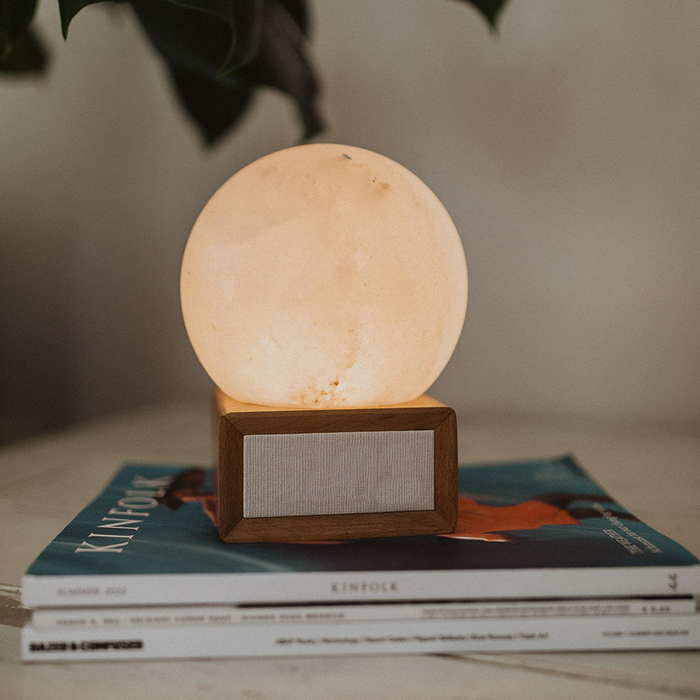

· By Erin Goodwin
What's Light Got To Do With It?
If your algorithm skews wellness, or if you fall into the category of wellness-enthusiast like us here at Rise Centered, you have probably seen a few light-centric tips sprinkled into your virtual content. Practices like getting in some morning sunshine, watching the evening sunset, or making your bedroom a blue-light free zone all distill down to one intention: the optimization of your circadian rhythm. Or, in other words, your very own light sensitive, 24-hour body clock.
The Basics
In essence, your circadian rhythm is your body’s time keeper. It’s the part of you who makes sure you wake up in the morning, fall asleep at night, and have energy throughout the day. Outside of light, there are a few other factors that work synergistically to set your circadian rhythm’s clock. Exercise, supplements, hormones, temperature, food and when you eat it all align your body with the cycles of nature, or pull you further away from them.
Ultimately though, your body needs exposure to natural sunlight and darkness to do what it does best.
Left to its own devices and sans modern day living, your body would harmonize with the earth’s day and night cycle. You would wake up with energy and fall asleep when it gets dark. Now enter: artificial light, phone screens, jet lag, early mornings, night shifts and anything else that works against your body’s carefully curated time-keeping system. All of these unsettle your circadian rhythm, and throw it off its usual routine.
More than 80% of us (99% if you live in the US or Europe) are exposed to light pollution at night, to the point where we can’t even see the stars. As a consequence of our highly-lit lives, we are less alert, moodier - think crying spells in aisle 5 - more fatigued, and reliant on caffeine fixes to get us through the day (shoutout to our local baristas!) The boundaries between day and night are blurring, leaving our circadian rhythms confused and honestly a little tired.
Realign your Circadian Rhythm
The good news is that with a few gentle tweaks to your morning and evening routine, you can reconnect your body to the earth’s rhythms and cycles.
AM: Aim to get 5 to 10 minutes of natural sunlight within half an hour of waking up. This activates your wakefulness hormones, and lets your body know it’s time to start the day. You don’t have to look directly at the sun to reap the benefits of this practice, especially if it hurts your eyes. If you wake up when it’s dark outside, use your sunrise alarm clock, and turn on as many overhead lights as possible, for a similar effect.
There’s no need to ditch your morning dose of caffeine, but waiting 90 minutes post wake-up for your first cup goes a long way. This 90 minute window allows your body to naturally energize itself and absorb the remaining ‘sleepiness’ hormones still circulating in your system - meaning you’ll be less likely to experience a caffeine crash later in the day. If you decide to have a second cup, or more - we aren’t judging - pay attention to timing. Different people have different caffeine tolerances, so while some of us can consume caffeine well into the night, others of us can’t have caffeine past noon. Get to know your body’s unique caffeine tolerance, and do what works best for you.
When you can, save intense workouts for mornings or early afternoons. High-intensity exercise close to bedtime can be stressful on the body, and tends to disrupt deep sleep.
PM: Prioritize slowing down in the evenings, and carve out 5 to 10 minutes to watch the sunset. The change in light during sunset lets your body know that darkness and rest are coming soon, and your body will release hormones like melatonin for deeper sleep. If you prefer to exercise in the evenings, opt for gentle movement like yoga or pilates. Better yet, pair your evening movement with sunset light and go on a walk while the sun goes down. Turn off your screens at least half an hour before bed, and indulge in some blue-light free activities like reading, journalling, meditation, breath work or connecting with a loved one.
As always, wellness is not about perfection or inundating our calendars with endless to-dos. Wellness is the cumulative effect of small, actionable changes that aggregate over time. Everything and anything counts, so use your discernment and see which habits fit most seamlessly into your life. Your body, and your circadian rhythm, will thank you for it.
Here's to easy to integrate habits and a healthy circadian rhythm,
The Rise Centered Team
